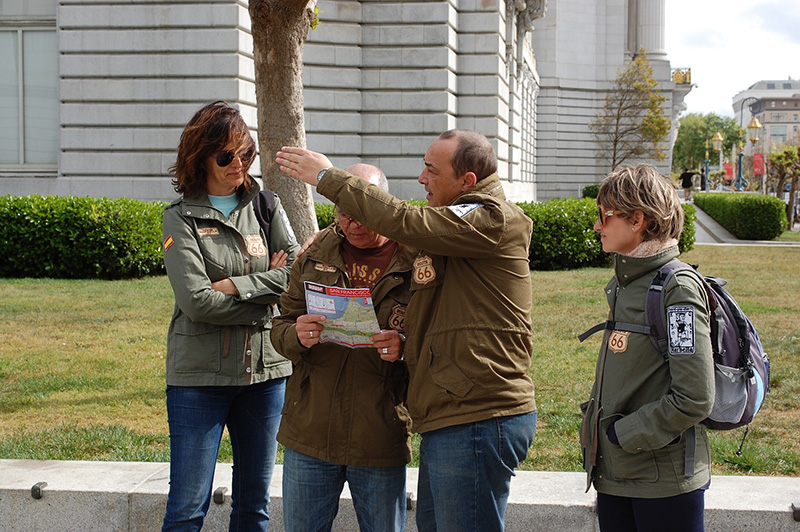
Gavilla, G. (2015). Lost [Photography]. Taken from https://goo.gl/NbFwsN
In our daily life, we face new situations such as visiting new places, meeting people, where we have to give or ask for information. For example, Do you remember your first day at university or work? Who was the first person you talked to? How did you find your classroom, the restrooms or the cafeteria?
When we want information, we ask questions using words such as; who, what, where, how and when.
In this topic, you will learn useful words to ask questions. You will practice vocabulary related to numbers, dates, emails, nationalities, countries, as well as words to ask and give personal information. Then, you will identify specific information that question words ask for. You will also read a bulletin board to identify specific information on some ads. To practice listening comprehension, you will listen to an interview between two young men in order to identify personal information. In the writing section, you will write questions for answers and answers to questions. Finally, in the verbal section, you will record questions and answers according to sentences that appear on the screen. Your goal will be to identify the photo of a famous man. When you finish the activities, you will be able to ask questions easily and find specific information.
By the end of this topic you will:
We have words that help us ask for information. These words are called Question Words or Wh-words. These words are helpful to ask information about people, places, activities or dates.
In the mind map below, we are going to study Question Words. Click on each circle to find more information and examples about each Question Word.
Notice that to ask or to give information; you need not only words but also the necessary vocabulary to be fluent and intelligible. For example, we can combine cardinal numbers (1,2,3,4...) and question words to ask someone his or her telephone number or age.
Look at this dialogue:
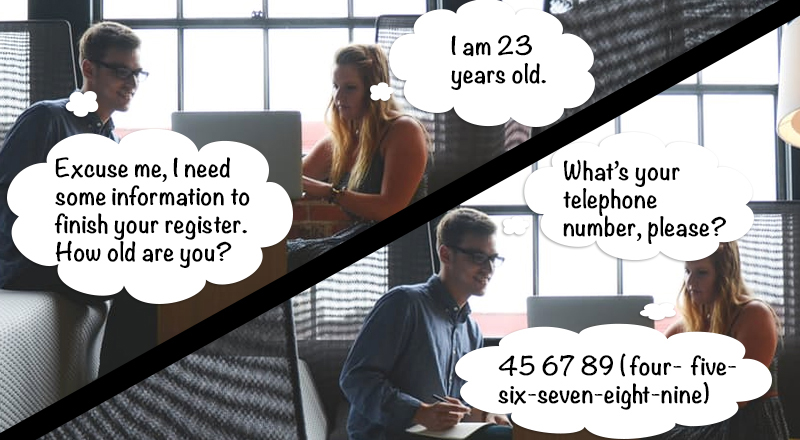
Notice the importance of numbers in the dialogue. Hence, it is essential that you learn them. You will also need to learn cardinal numbers to express dates. In the dialogue, you will listen and pay attention to their pronunciation.
|
Cardinal numbers  00:00/00:00 |
||
0 zero |
11 eleven |
|
|
Ordinal numbers  00:00/00:00 |
|
1st first |
13th thirteenth |
We can ask or give specific dates such as birthdays or holidays using ordinal numbers, months and years.
Take a look at the following dialogue:
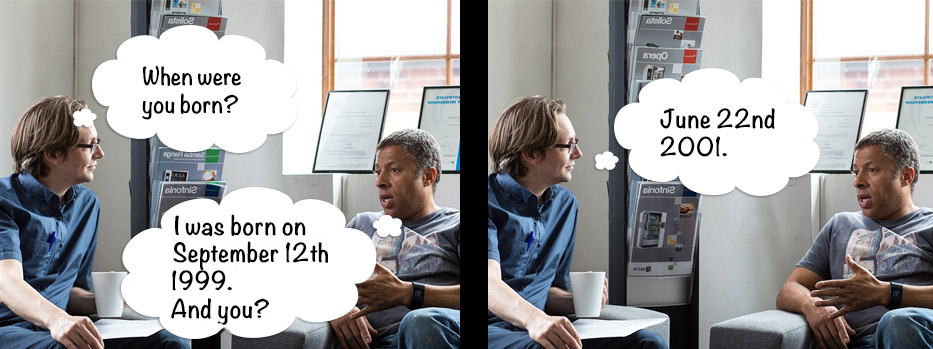
|
00:00/00:00 |
|||
 January |
 February |
 March |
 April |
 May |
 June |
 July |
 August |
 September |
 October |
 November |
 December |
We have explored ordinal numbers, now let’s take a look at the months. Remember that they will be instrumental in asking and giving dates.
When we ask questions about countries and nationalities, we use the name of the country, city or nationality. To ask for someone’s nationality or country, we can use Where or What. Look at the following examples:
Where + verb to be + subject + complement?
Subject + to be + from + country/city
Example:
Where are you from?
Where is she from?
What + nacionality + verb to be + subject + complement?
Subject + to be + nationality
Example:
What nationality are you?
What nationality is he?
Let's explore some of the most important countries and their nationality. Listen carefully to the pronunciation of each word. It would be beneficial if you could download the audio, and listen to it often.
Sometimes people will not only ask your name, age, and where you are from; they will also ask for your contact information. For example, your e-mail. To ask and give our email we use specific symbols.

Listen to the names of symbols when giving an e-mail
Look at the conversation:
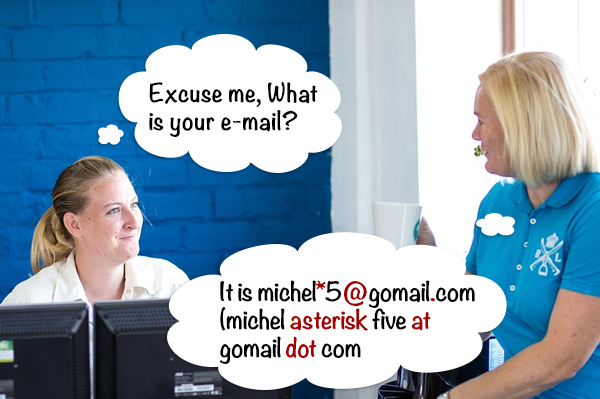
We use the alphabet to spell words and avoid confusion. You must learn to recognise and pronounce each letter. For example when we give or ask our name:

The structure for making questions and their intonation is as follows:
For questions
Question Word + Auxiliary verb or verb To Be + Subject + Main verb + ?
For answers
Subject + Verb + Complement (place, age, thing, date)
They generally have a falling intonation at the end.
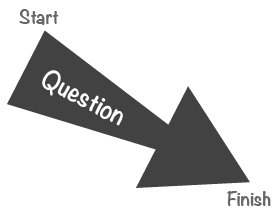
Listen the following sentences.

Now, let’s practice with these exercises.
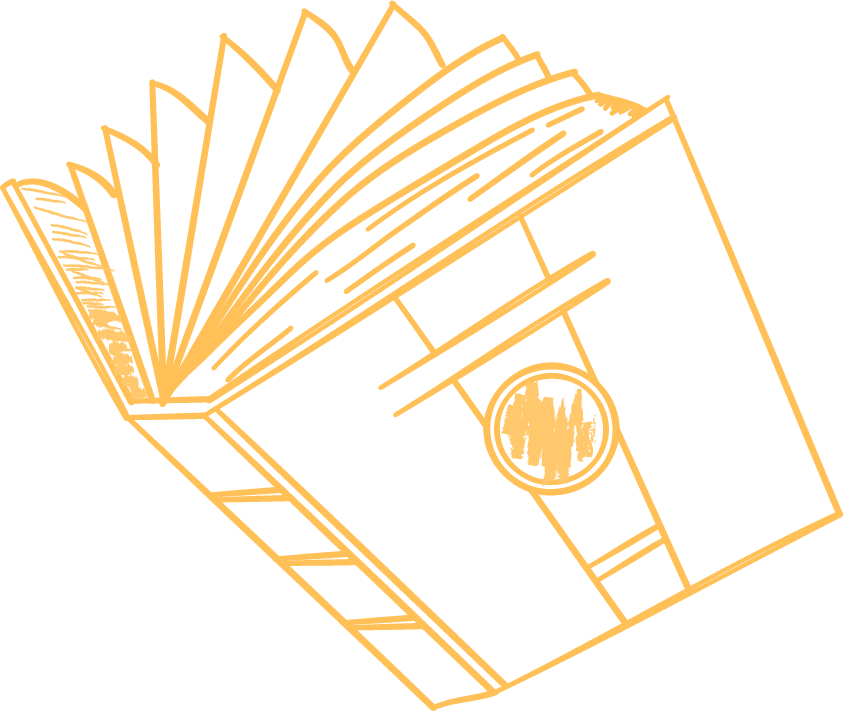
Activity 1
Do you know what a bulletin board is? Do you have a place in your school to announce events?
Read the following advertisements on the bulletin board carefully. When you finish, answer the questions below. You need to find the answers to the specific question words.
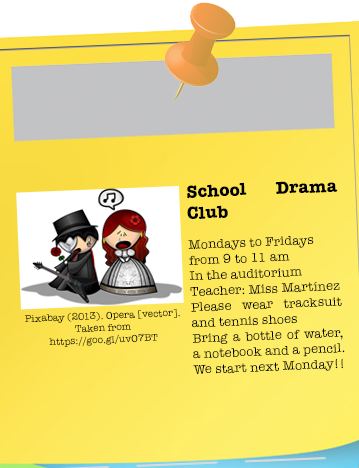
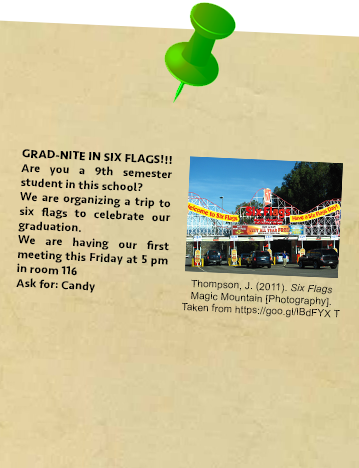
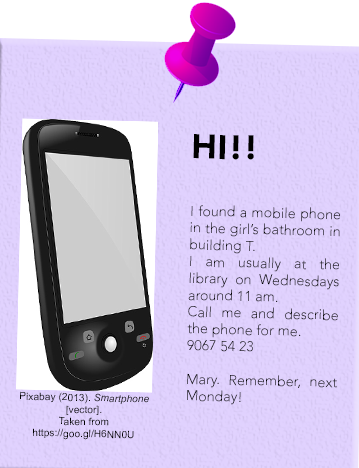
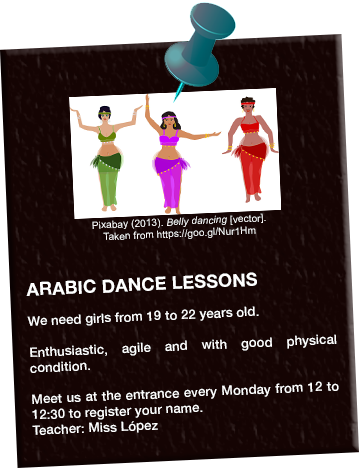
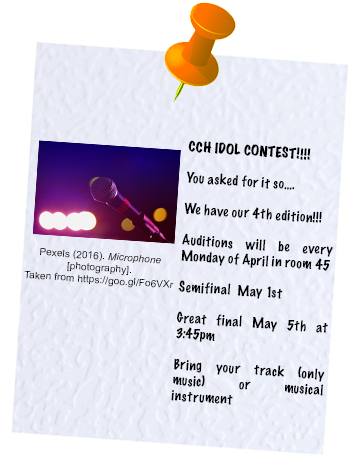
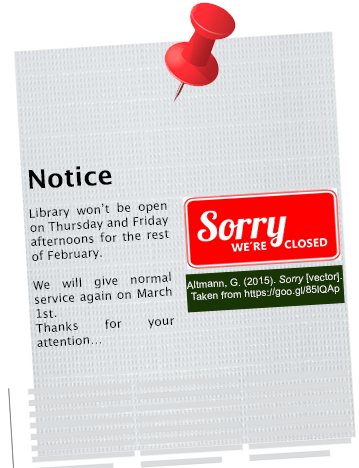
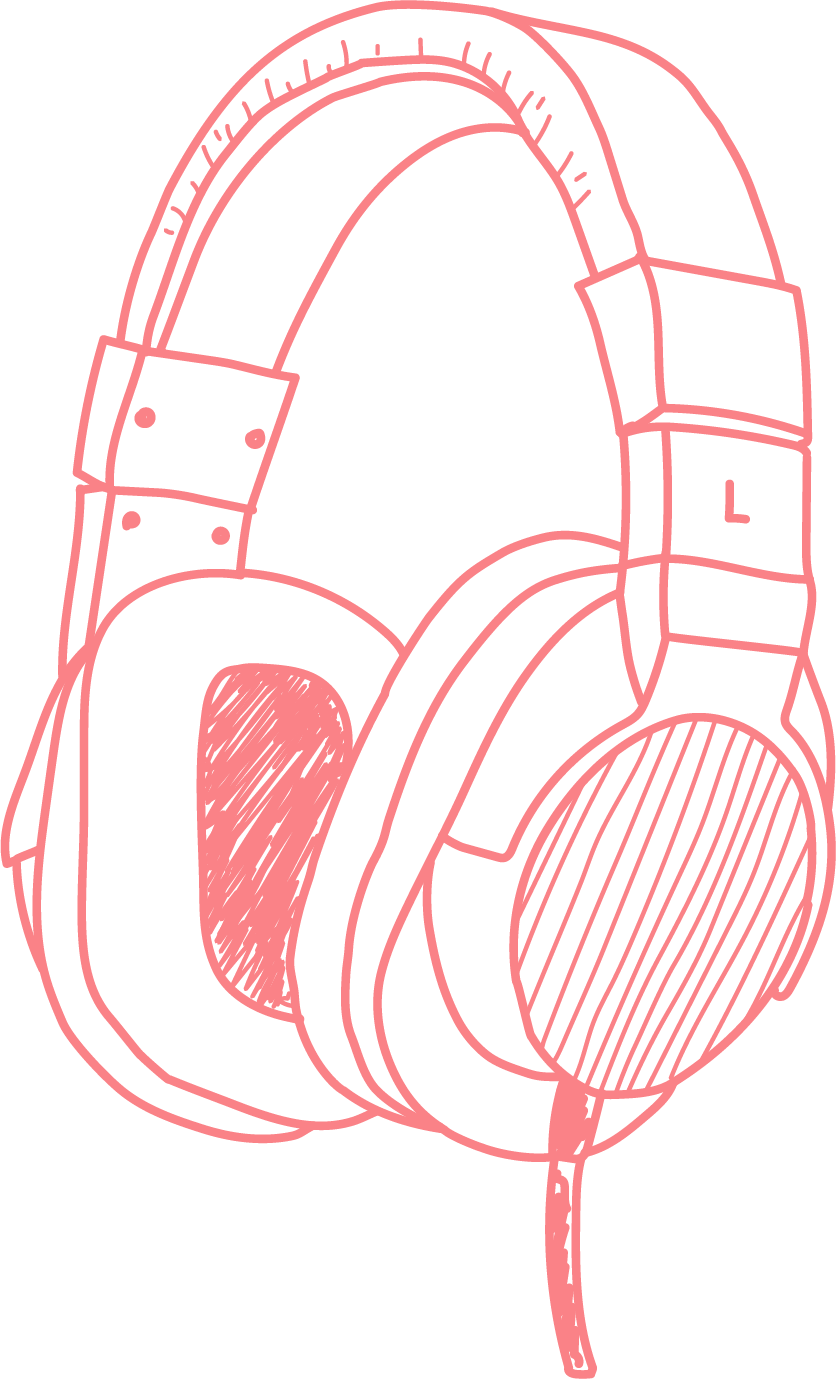
Activity 2
Sometimes we have the opportunity to meet new people, either in touristic places or just by chance. Here is a conversation between two people who meet in the Natural History Museum in Mexico City.
Listen to the conversation and answer the questions. You can listen to it as many times as you need, but you only have ONE opportunity to answer the questions.
Press to play button to listen the program.


Activity 3
Understanding Question Words is essential for reading and writing in English. In this activity, you will practice with sentences that appear on the screen. If you see a question, based on the question word write the answer. If you know an answer, write the question using the correct Question Word (When/Where/Who/What/How ) for that answer.
Example:
My mother’s birthday is on May 23rd.
Question:
When’s your mother’s birthday?
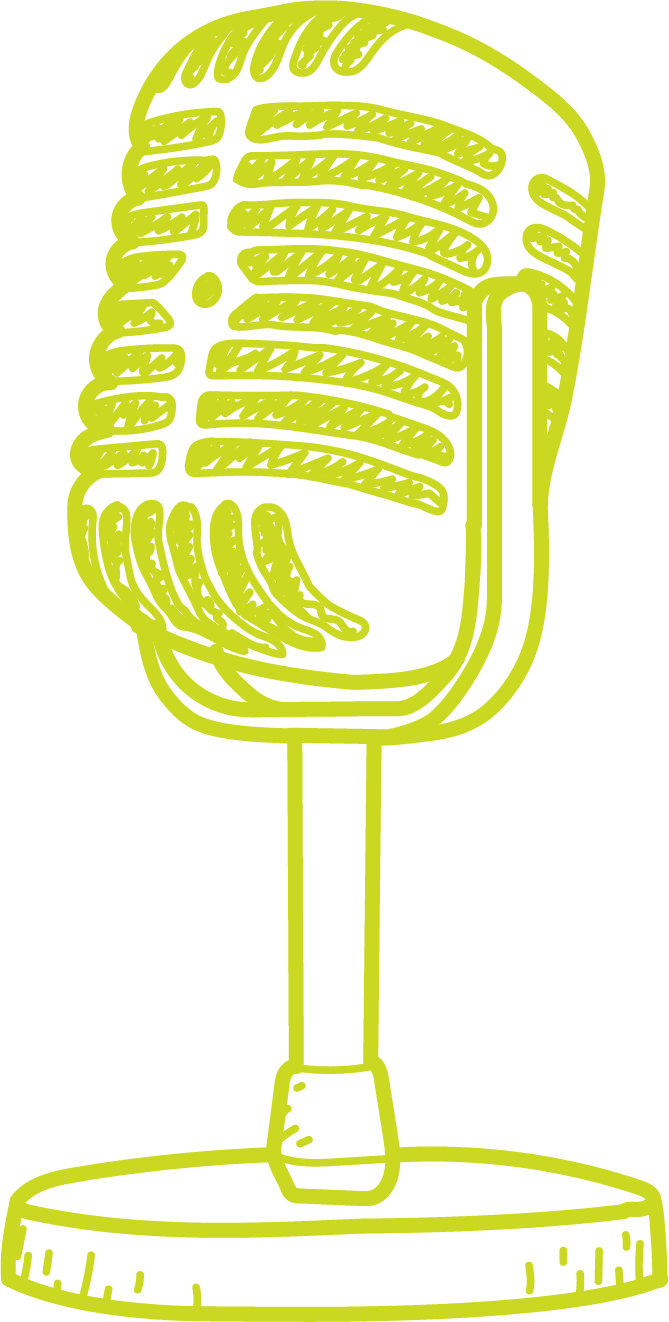
Activity 4
Using the correct Question Word will help you get specific information from the people you are talking to. In this activity, you will record yourself asking questions for the answers on the screen. Think of the correct question that corresponds to the idea and record it. Remember to rise up your intonation at the end of a question.


Remember to study the rubric to make sure your activity follows the requirements.

Chain, E. (2005). Mark Zuckerberg [photography]. Taken from https://goo.gl/zetjqG
How well can you use Question Words?
Now let’s check how well you can use Question Words with vocabulary.
You have words to put in order and make logical questions or answers.
• Murphy, R. (1997). Essential grammar in use: A self-study reference and practice book for elementary students of English: with answers. Cambridge, U.K: Cambridge University Press.
• Oxenden, C. Latham-Koenig, C. (2013). American English File 1. Oxford, U.K. Oxford University Press.
• Coe, N., Harrison, M. & Patrson, K. (2006). Oxford Practice Grammar. Oxford, U.K Oxford University Press.
• English Media http://www.cuaed.unam.mx/english_media/